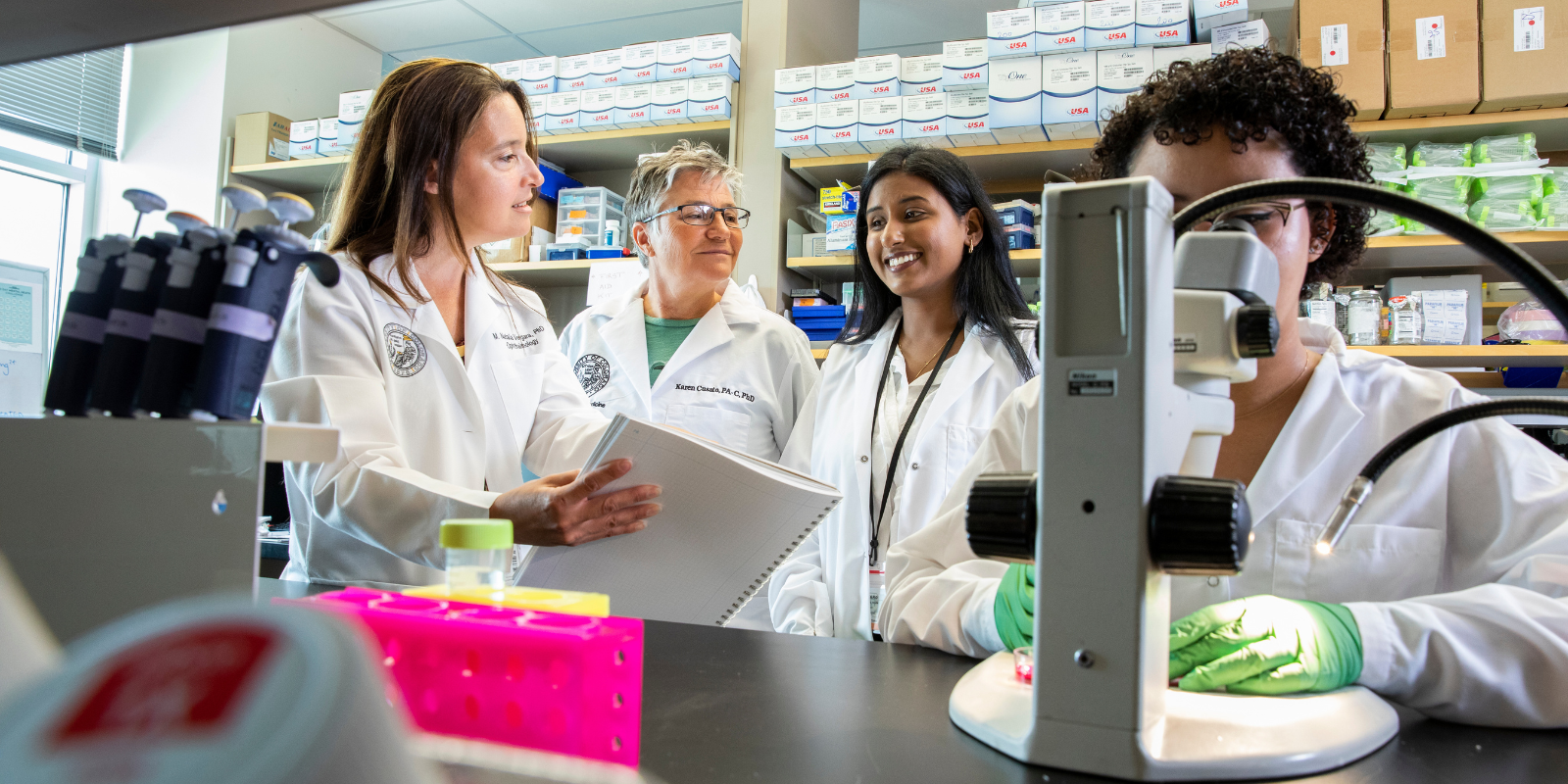Every fourth Tuesday, Michael Puente, MD, assistant professor in the Department of Ophthalmology at the University of Colorado School of Medicine, dedicates his schedule to serving patients with developmental disabilities in the UCHealth Pediatric-Adult Ophthalmology Transition Clinic.
“It's one of my favorite things I do,” Puente says of the clinic, which he started at the Sue Anschutz-Rodgers Eye Center two years ago after realizing many ophthalmology patients were aging out of pediatric care at Children’s Hospital Colorado and needed physicians tailored to their needs. “So many of those patients have nowhere else to go, and there’s so much that we can do to improve their quality of life.”
Many of Puente’s patients at the clinic have Down syndrome, a condition that occurs when an extra 21st chromosome is present.
“People with Down syndrome can have a lot of problems with their eyes and with their vision,” Puente explains. “Those problems can start from birth and extend into adulthood, and affect almost every part of the eye, from cataracts, to eye misalignment, and a disease called keratoconus, which affects the cornea.”
Leading future guidelines
While treatment for vision-threatening diseases associated with Down syndrome has improved, Puente and Emily McCourt, MD, associate professor of ophthalmology and the Ponzio Family Chair for Pediatric Ophthalmology, say there are gaps. The two are currently working with the Global Down Syndrome Foundation to develop guidelines for adult eye care for patients with Down syndrome.
“We're going to assess all the research that's out there — which is not enough — to figure out what sorts of questions are most important for us to answer next as a specialty, like how to best manage cataracts in people with Down syndrome or what types of glasses might be favorable for these patients,” Puente says. “We also going to dedicate resources to answering some of those questions, so that we can have better data to guide our recommendations for how often these patients need to be getting eye exams and screenings for diseases like glaucoma or macular degeneration.”
Children with Down syndrome should get an eye exam by someone with pediatric training once per year, Puente says, “because the rate of vision problems and correctable vision problems is so high.” Research points to approximately 94% of children with Down syndrome having below-average vision and almost 80% having visual acuity more than two standard deviations worse than average.
For adults, the picture becomes less clear.
“There aren't set guidelines on how often adults with Down syndrome should be getting eye exams,” Puente says. “But I recommend every few years at minimum.”
Personalized patient needs
Providing care for patients who are transitioning to adulthood becomes especially important.
“People with Down syndrome are likely to develop cataracts at a much earlier age than their peers,” Puente says. “Many of them develop cataracts in childhood, but many other people with Down syndrome will develop cataracts that need surgery in their 30s or their 40s as opposed to other people who might not need cataract surgery until they're in their 60s or 70s.”
At the UCHealth Pediatric-Adult Ophthalmology Transition Clinic, staffed by Puente and a pediatric optometrist, exams are tailored to the patient to fit their specific needs.
“It's not a one-size-fits-all approach. We talk to the caregivers and to the patient to assess their strengths and proceed accordingly,” Puente says. “We take all the time that we need, and we use techniques that many ophthalmologists and optometrists who focus on adults might not be familiar with or skilled at, such as performing an eye exam on a person who is non-verbal the same way a pediatric ophthalmologist would on a baby.”
Because of the specialization, Puente says, the clinic is making a difference in many lives.
“I’ve had patients who had gone years without an eye exam in adulthood because they just couldn't find someone who was able to provide that exam,” he says. “Since starting this clinic, we've taken care of many patients who hadn't been able to get a good eye exam in decades, but we’ve found ways to help them in our transition clinic.”



.png)
